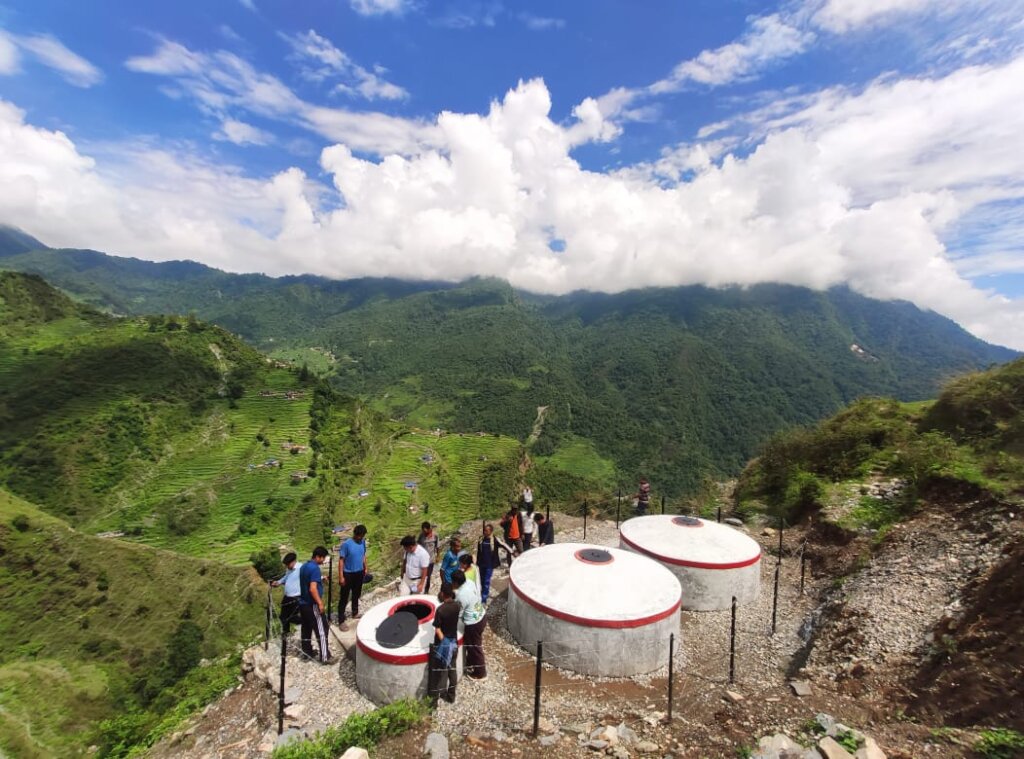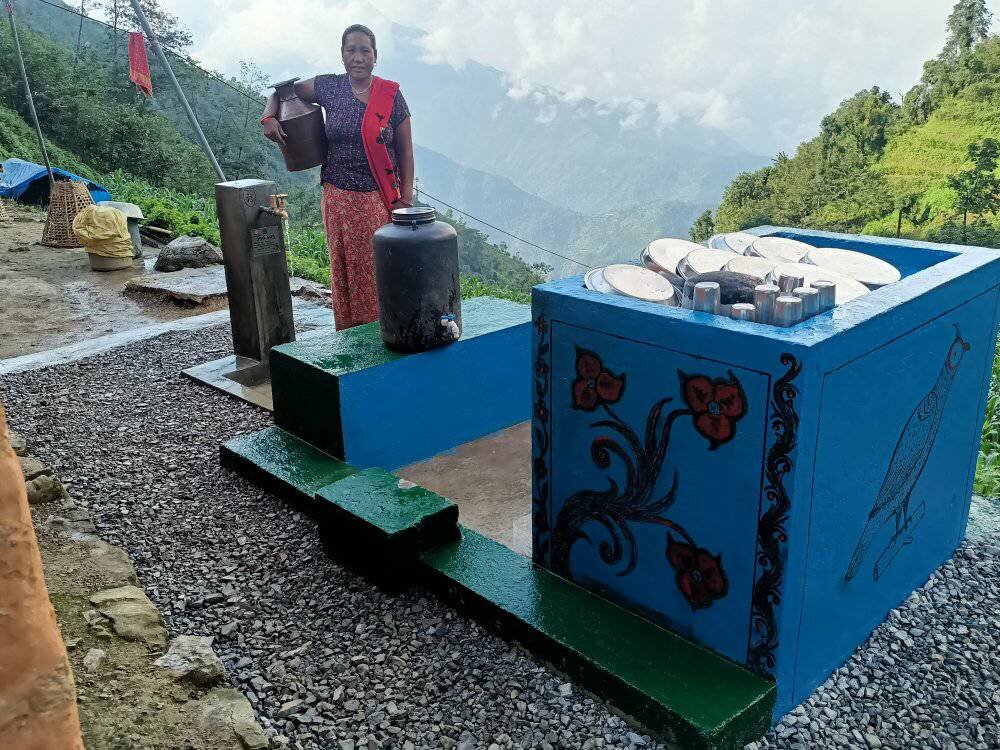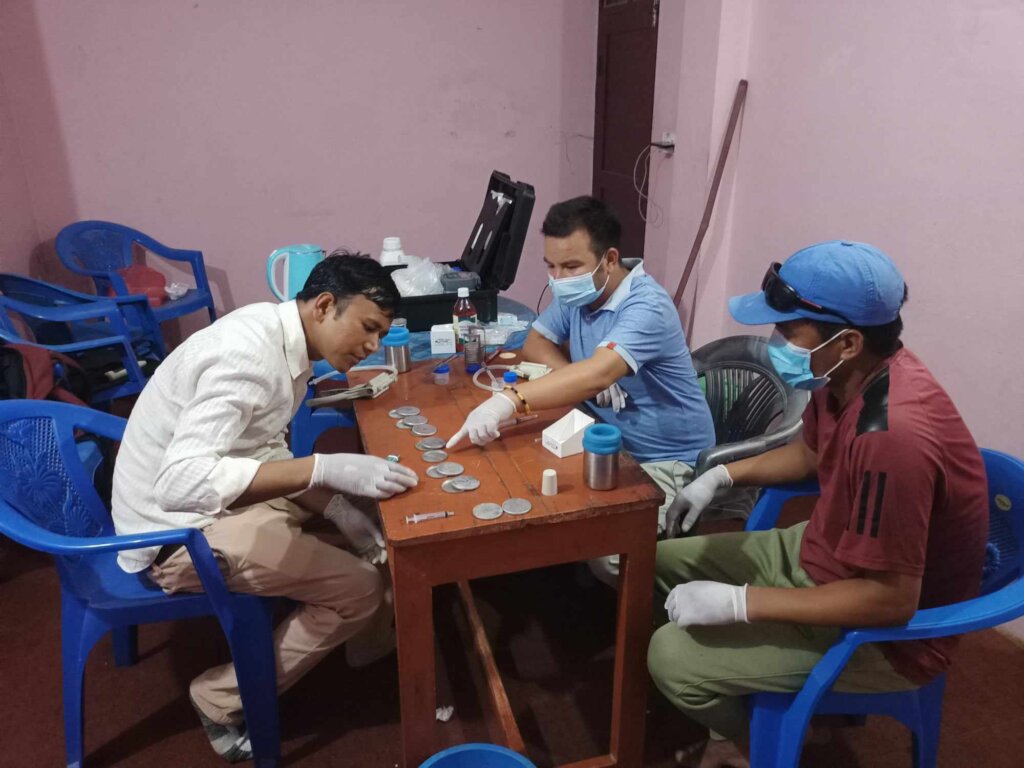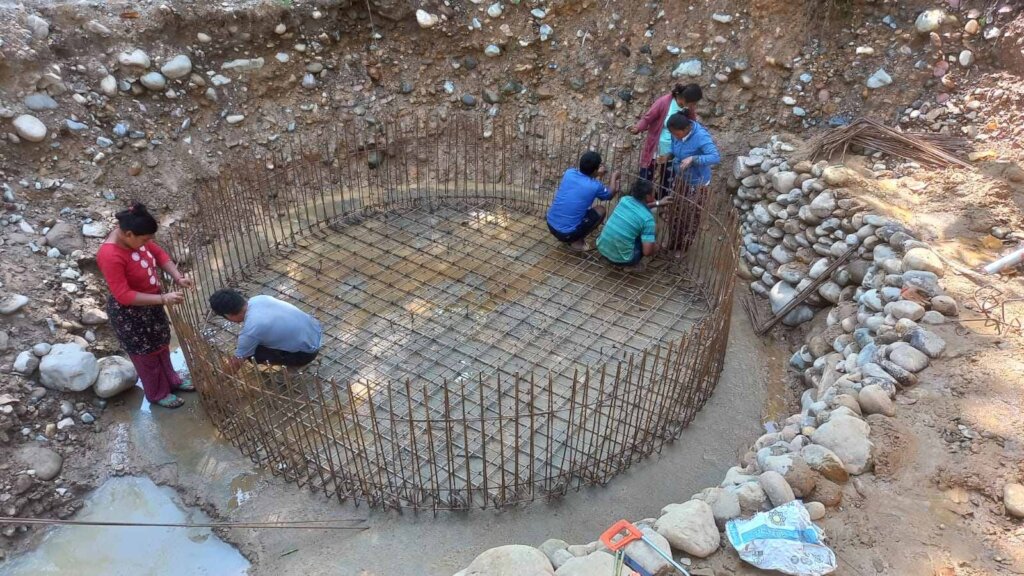By Umesh Basnet | Research and Development Coordinator
This year NEWAH has reached the milestone of celebrating its 31 years anniversary. NEWAH continued the support for the development and strengthening of water, sanitation and hygiene (WASH) infrastructures in rural areas of the country by working directly with the beneficiaries, building their capacities, and providing them opportunities for socio-economic empowerment. As NEWAH believes in joint action, it actively collaborated with the government and sectorial development partners at all tiers and levels. Besides, NEWAH has done remarkable contributions in the fields of awareness creation, capacity building, policy influence, research, and advocacy to secure the needs of safe water and sanitation for underserved communities. Up to this project cycle NEWAH was able to complete 2,670 projects in 51 districts of the country benefitting 2.2 million people from 362,415 households, including 324,421 students through facilitation and service delivery. In the Fiscal Year 2022-23 specifically, NEWAH has made significant endeavors to improve the quality of life of the underserved population through WASH services. A total of 64 projects were executed, reaching out to 5,600 households and 51 schools, directly benefiting 45,393 people from the districts of Baglung, Sindhuli, Myagdi, and Kavre. In this regard, a total of 3,407 water distribution points at community level were constructed to serve 38,845 daily water users, while the ones constructed for 51 schools reached 7,301 students. Most of the projects used simple gravity flow technology, while the remaining others utilized solar pumping and motorized pumping technology. For all water systems water quality tests were conducted as per the national standard and the guidelines regarding their physical, chemical and biological parameters. Based on the newly implemented Strategic Plan 2022-2026, NEWAH has continued carrying out its program under the four thematic areas, Sustainable WASH Service Delivery, Capacity Building, Coordination and Advocacy and Research and Development and Knowledge Management, taking into consideration the fields of Climate Change Adaptation and Disaster Risk Reduction; Gender Equality and Social Inclusion (GESI); Agriculture, Nutrition and Livelihood; and Integrated Water Resource Management (IWRM) as cross cutting issues. NEWAH has strengthened the capacity of 64 Water and Sanitation Users’ Committees (WSUCs) formed during 2022-23 in the areas of project management, monitoring and sustainability through skill-based training and orientation for 690 WSUC members including 315 female members. Likewise, the members of the Ward WASH Coordination Committees (W-WASH-CCs), School WASH Committees, Community Child Health Groups (CCHGs) and Child Health Awareness Committees (CHACs) also benefited from its various capacity building activities. Furthermore, NEWAH organized several cluster-based education and WASH campaigns to create public awareness and bring sustainable hygiene and sanitation behavior change to rural areas of Nepal. As usual, NEWAH has been continuing with Participatory Monitoring and Evaluation using Community Based Monitoring and Evaluation (CBME) tools where the users were involved right from the planning stage up to project implementation, operation, maintenance, monitoring and evaluation stages. Moreover, a series of pre- and post-implementation monitoring activities were carried out for the past projects supported by ‘charity: water’. NEWAH has been using monitoring mechanisms like Hello Monitoring, sensor technology and also has managed the provision of a Toll Free Number available to all communities. The results of Hello Monitoring performed within some selected project sites, where projects have been completed over the last years (399 grant and earlier), have shown that 81% of the water supply systems were still functional, 14% are partial functional and 5% are non-functional. Of the monitored 11,782 water points 92.56% were functional in terms of water flow while only 7.44% water points were non-functional. NEWAH ensured to address the issues of Gender Equality and Social Inclusion (GESI), Climate Change, Disaster Risk Reduction (DRR) and Research & Development as key priorities across its entire policy and implementation works. Even though NEWAH tries to ensure 50% participation of women in WSUCs, there is only a 42.77% representation of women in all WUSCs formed during 2021-22. However, in 50% of cases women are in decision-making positions of the committee. NEWAH is trying its best to increase the percentage of women in WSUCs in coming years. Besides, based on our gender equality and social inclusion policy, we also ensures a proportionate representation of all castes, ethnic minorities, and socio-economic groups among project beneficiaries and the WSUCs. Of the total beneficiaries of 2021-22 classified by ethnicity, 66.18% belonged to the group of ‘Janajati’, and 21.82% belonged to the group of ‘Dalit’. Furthermore, participatory wealth ranking data from the project area suggests that 45.34% of the beneficiaries were categorized as being ‘Ultra-poor’. This year, just like previous years, NEWAH’s partnership with ‘charity: water’ continued. Since 2010 ‘charity: water’ has been supporting NEWAH as primary funding partner. Based on the data given by the financial report 2022/23, NEWAH’s total income during 2022-23 amounted to NPR 256,278,909.00 (equivalent to USD 2,118,007.51; conversion 1 USD = NPR 121.00). With a burning rate of 100% the total expenditure comprised NPR 256,278,909.00 as well. Of the total expenditure 82.81% was spent on the program while 17.19% was spent on administration. Despite of those achievements however, there are several challenges that need serious attention, not only concerning NEWAH but the WASH sector as a whole. The communities that are left to benefit from WASH services in Nepal are far, scattered and inaccessible. And it is not easy for NEWAH and other stakeholders to reach out to these settlements due to geographical, technological and investment barriers. Furthermore, issues like the depletion of water sources as well as landslides and forest fires, which are all difficult to predict, have added additional challenges to NEWAH’s activities. In the upcoming fiscal year 2022-2023 NEWAH will focus on Research and Development as well as Knowledge Management and will consider environmental aspects in the upcoming projects. Similarly, as we have done for the last decade, we will mainstream our approaches considering the issue of climate change and working on DRR, GESI and IWRM. NEWAH is also planning to diversify its working areas and to cover additional new project sites in the upcoming annual project cycle.
1. Feature Story
R.B’s Journey: From learning to Empowerment
R.B, one of the VMW training participants is a 44 years old woman, residing in a remote village of Tallekh in Mugu district of Karnali province. She lives in a joint family with 14 family members. Her husband is a farmer and spends most of his time in the field. Besides, being a good housewife she manages her extra time to contribute for society development so now she usually participate in most of the local level discussion and decision making processes. Being one of the active women in her community she had joined the USAID Karnali Water Activity supported water supply scheme construction project implemented in her village, from the very beginning of the project along with other villagers. In the beginning she didn’t have any ideas about the water supply system construction, maintenance and operation so she had joined the WSS construction work just to make some additional income in order to support her family to sustain their livelihood. Even though her husband, who had some knowledge on water supply system maintenance and operation was very much busy taking care of his cattle and agricultural land, he along with other community people encouraged R. to participate in 14 days VMW residential training organized by NEWAH. R. actively participated in the training and eagerly engaged in all the practical sessions as well as other group work and presentation activities. She was always curious and wanted to know more and more about the training components. Although she didn't have much formal education, she was determined to learn and remember the technical aspects. Now she had successfully completed the training program being a good inspiration to other women in her community. Now she is much more committed and determined to involve actively in sharing knowledge gained from the training to other people in the community and to make her water supply scheme more functional and sustainable through regular repair and maintenance. R.´s enthusiasm and thirst to learn and explore new things remind us that gender, age and marginality aren’t the barrier to gain new skills and bring positive change in the communities.
Links:
By UMESH BASNET | R&D and Fundraising Coordinator
Project reports on GlobalGiving are posted directly to globalgiving.org by Project Leaders as they are completed, generally every 3-4 months. To protect the integrity of these documents, GlobalGiving does not alter them; therefore you may find some language or formatting issues.
If you donate to this project or have donated to this project, you can receive an email when this project posts a report. You can also subscribe for reports without donating.



